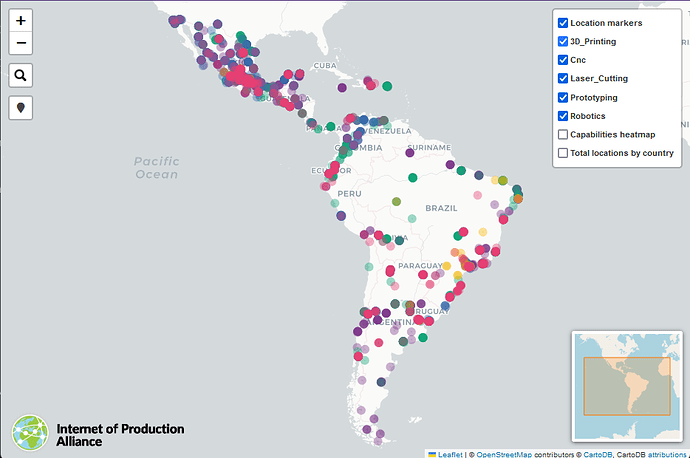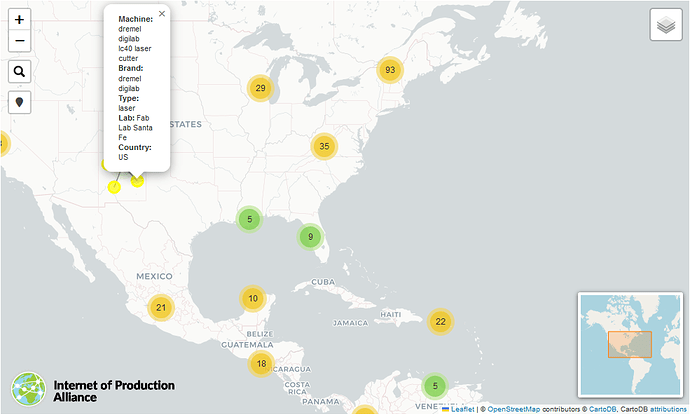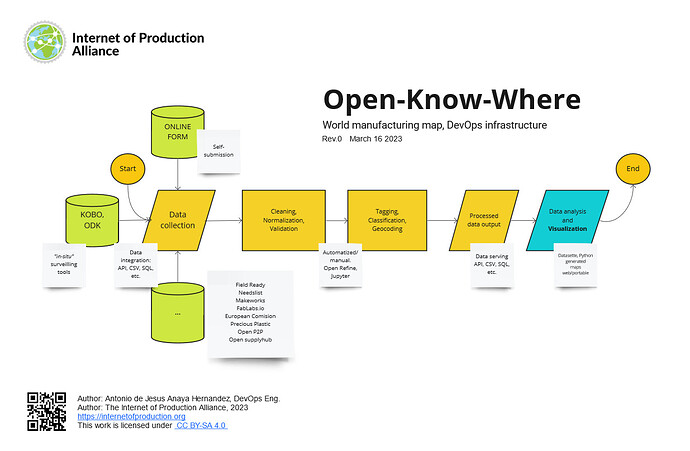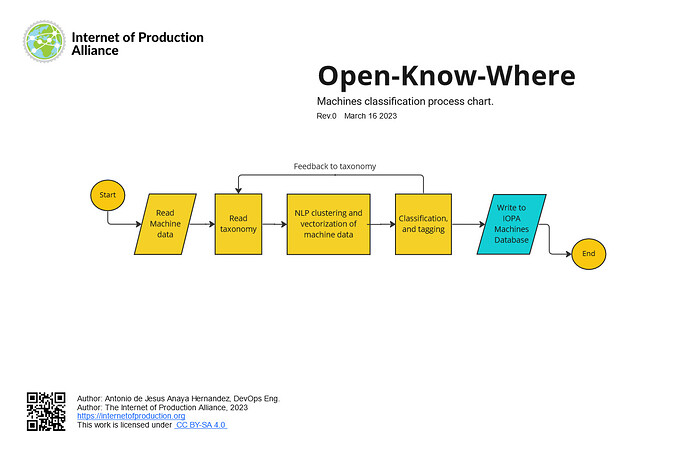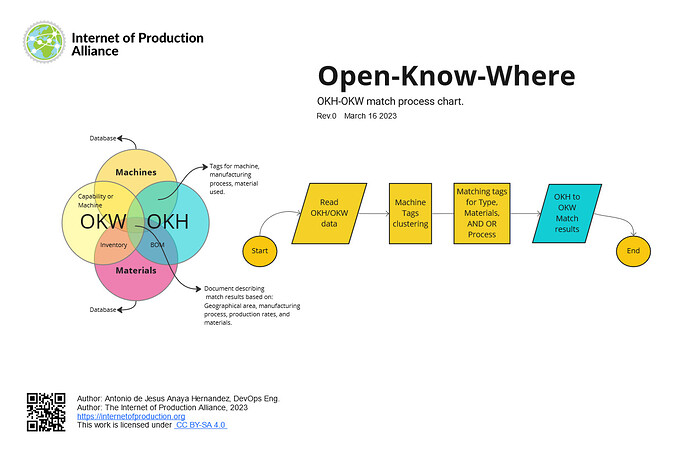Hi everyone,
I had a conversation with @Jbutler-helpful on March 16th, 2023 about the Open-Know-Where as an initiative.
The main points of discussion were:
- OKW’s current tools, documentation, and the shown list of resources:
- Prototype Folium map:
-
Description:
This map is generated using Python, by reading database files. This example uses GeoJson but it can be used to read, CSV, Sqlite, and so on converting the files to Dataframes. -
Link: Prototype map
-
- Data analysis of machines in Fab Labs:
-
Description:
This is a data scrapping exercise where data from fablabs.io has been analyzed and matched to Fablab locations with the output being a quantification of machines, and classification of machines by clustering tags to the [‘3d printing’, ‘laser’, ‘precision_milling’, ‘cnc_milling’, ‘vinyl_cutting’] capabilities classification. -
Link: Machines in FabLabs classification, geolocation, and data analysis.
-
- Current infrastructure of the OKW:
- OKW Map diagram:
-
Description:
This diagram represents the current workstream (That is a work in progress) for the OKW map of manufacturing. -
Link: OKW map page
-
-
We talked about these initiatives:
-
OKH intersection with OKW:
- Machines classification process and taxonomy:
- Description: Taxonomy that defines and classifies the machines by Machine type, Manufacture process, and Material type inputs.
- Matching OKH and OKW.
- Description: Match OKH and OKW documents by Geographical area, manufacturing process, production rates, and materials.
- Book recommendations:
- Requests by James:
- Add James to the communications stream and keep frequent meetups about OKW. Done, passed to @schutton.
- Have an OKW standard specification ERD description document in YAML format.
- How to export Jupyter notebooks to interactive HTML files.
- Summary of Jupyter notebooks by IoPA DevOps.
